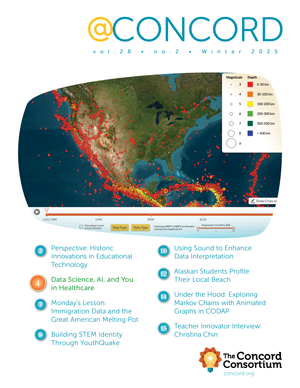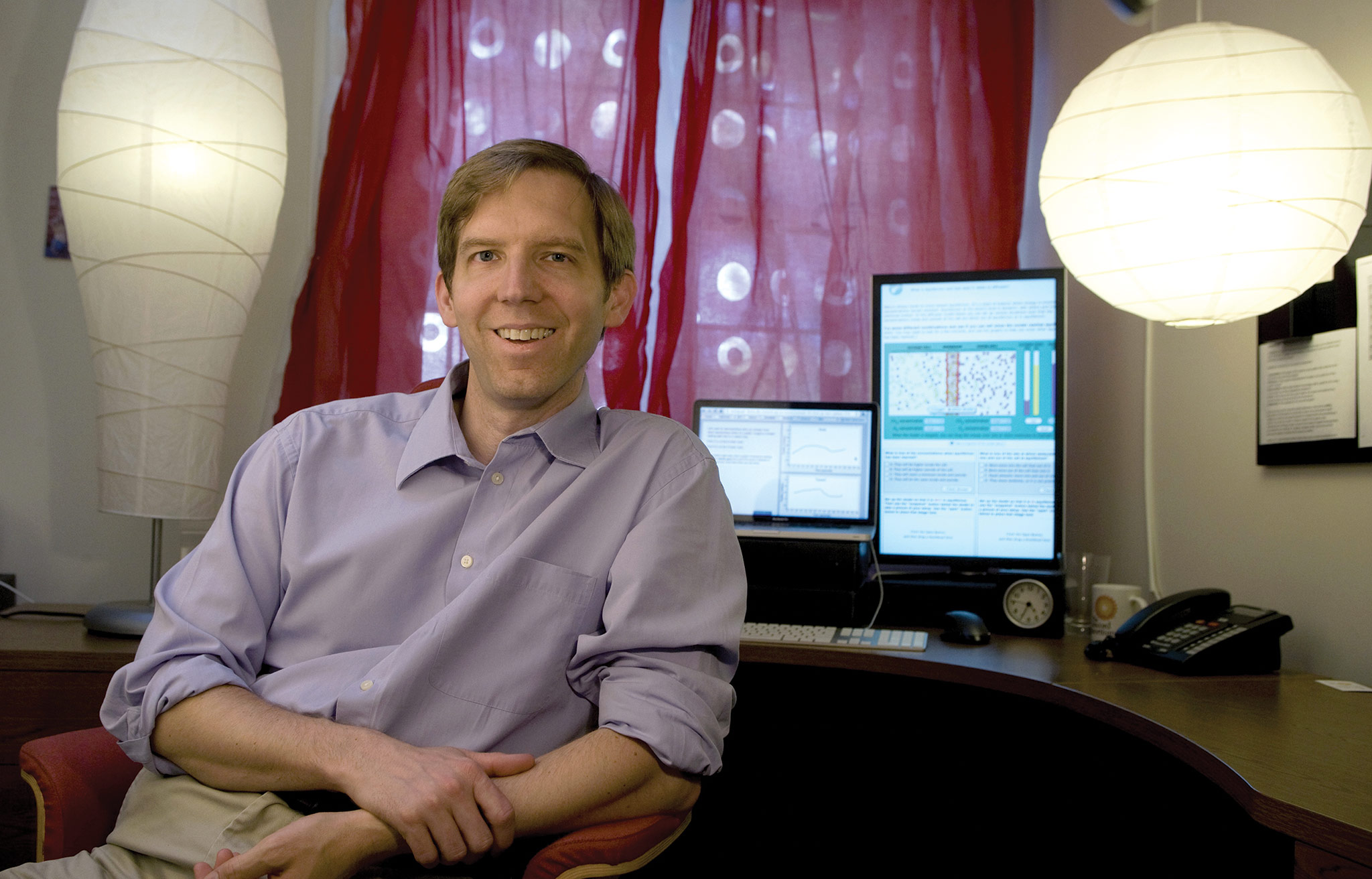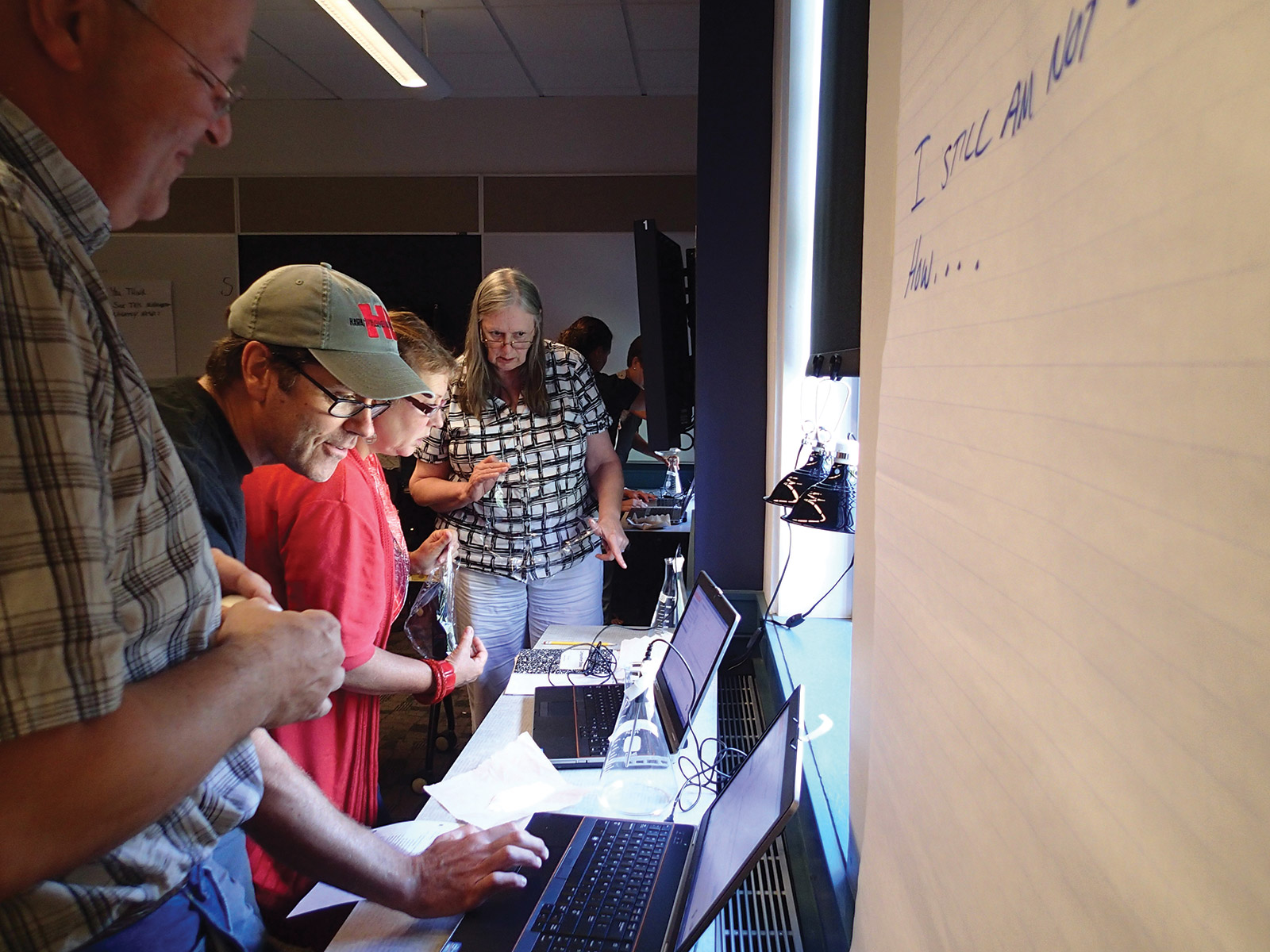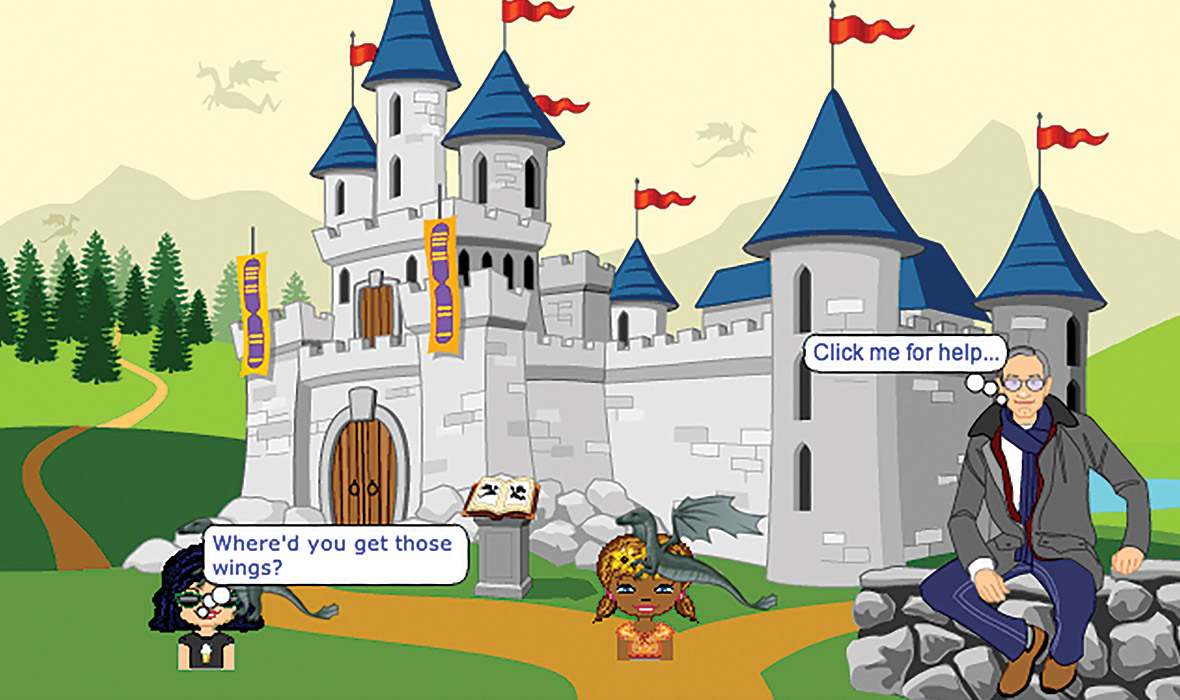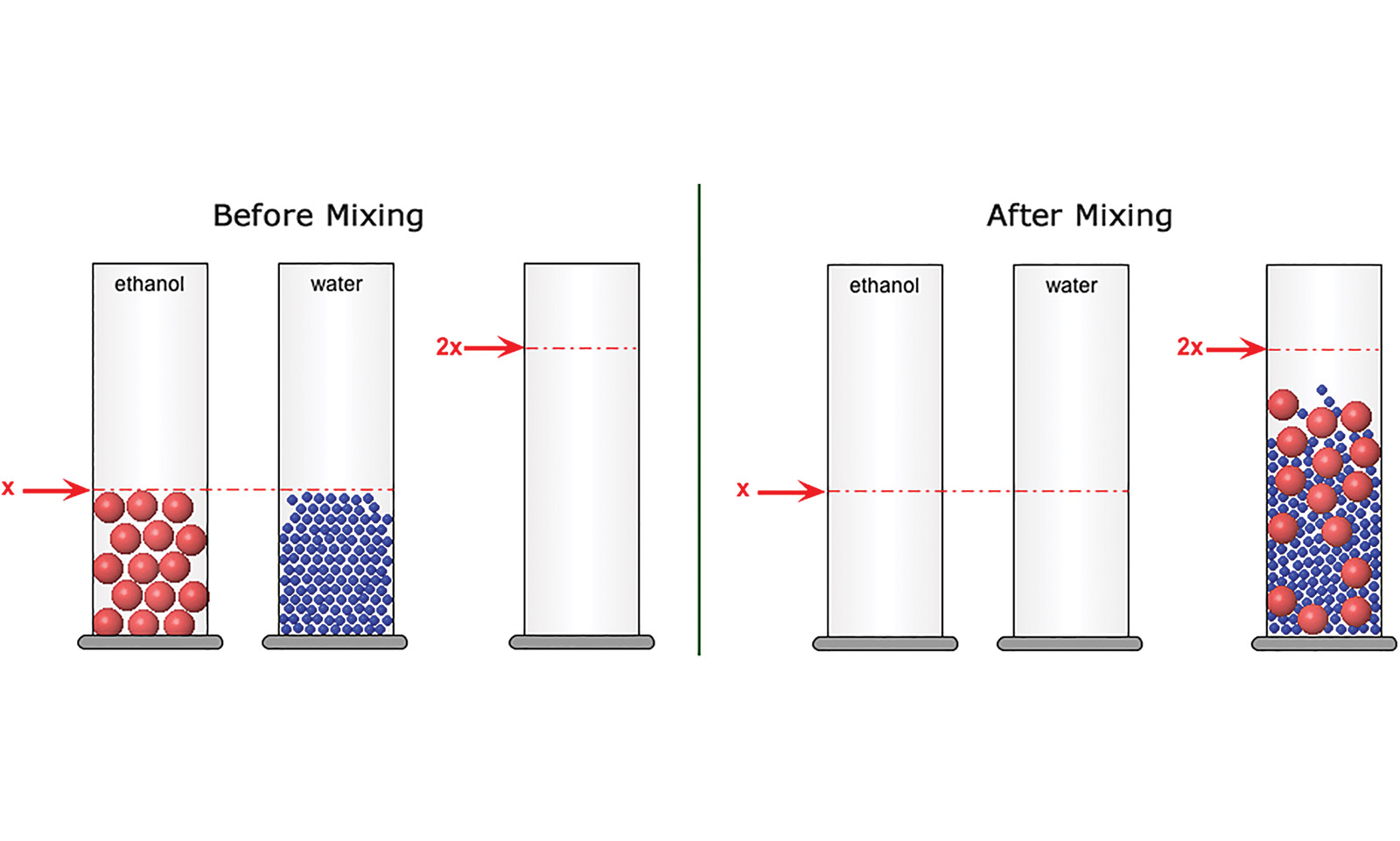Rhode Island Students Score High on Inquiry, Dragons in Social Media, Molecular Modeling in Cyberspace, and more in Spring @Concord
Perspective: Defined by Data
There is little denying that we live in a world defined by data. When historians view this era, the explosion of data and the ways in which it shapes our lives may turn out to be one of its most distinctive characteristics. The growth is staggering: the amount of worldwide data doubles every two years.
Rhode Island Students Score High on Inquiry
The Rhode Island Technology Enhanced Science (RITES) project has been fomenting change in educational and institutional practices, and most importantly, in student learning across the small but diverse state of Rhode Island since 2009. Funded by the Math and Science Partnership program at the National Science Foundation, the RITES project is a unique collaboration between Rhode Island institutions of higher education, public schools, the state Department of Education and the Concord Consortium.
Monday’s Lesson: Dragons in Social Media
The power and appeal of social media like Facebook and Twitter is tremendous, especially to young minds. We’ve found a way to harness that fascination and turn it to learning!
Molecular Modeling in Cyberspace
The 2013 Nobel Prize in Chemistry was awarded to Martin Karplus, Michael Levitt and Arieh Warshel "for the development of multiscale models for complex chemical systems." According to the secretary of the Royal Swedish Academy of Sciences, "This year’s prize is about taking the chemical experiment to cyberspace."
Understanding Graphs Step by Step
To guide student learning, the Common Core State Standards for Mathematics and the Next Generation Science Standards emphasize instructional practices that require more than recalling facts or applying familiar procedures.
Intermolecular Interactions are Key to Understanding
Have you ever played the game where the goal is to determine how a series of items is connected? Try this.
Under the Hood: In-browser Image Capture with Shutterbug
A new suite of our online STEM activities includes challenging web-based interactives that model physical phenomena—from diffusion to protein folding and pendulum motion to climate change. Students run the model, testing different variables, then answer questions about the model’s behavior by taking and annotating snapshots.
Innovator Interview: Andy Zucker
Meet Concord Consortium senior researcher and evaluator Andy Zucker. Learn about his career and background, his book Transforming Schools with Technology, and more.

